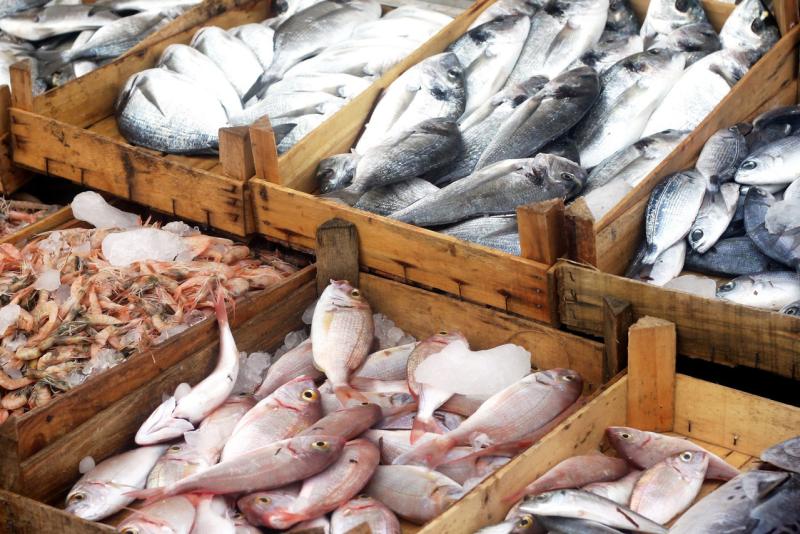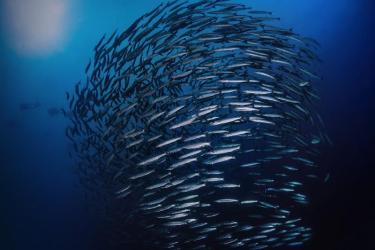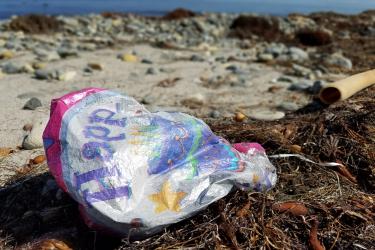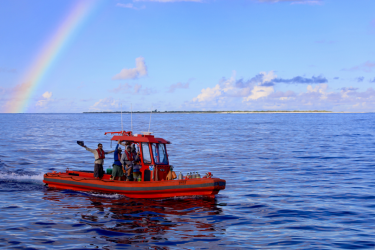NOAA Fisheries has submitted a report to Congress on the development of a priority list of species for consideration under the Seafood Import Monitoring Program. SIMP is a screening and deterrent tool to identify and deter illegal, unreported, and unregulated fish and fish products and misrepresented seafood from entering the U.S. market. It uses risk-based criteria to target the species most vulnerable to IUU fishing and seafood fraud. This complements the multiple tools the U.S. government uses to combat this issue.
The report evaluated the inclusion of the current species in SIMP and considered whether additional species should be included. The program’s current risk-based criteria targets the species most vulnerable to fishing and seafood fraud, and additional criteria as outlined by Congress.
“SIMP has been in effect for all 13 species and species groups, which comprise approximately 1,100 unique species, for about 3 years,'' said Alexa Cole, director of NOAA Fisheries Office of International Affairs, Trade and Commerce. “We are committed to its ongoing development and enhancement, both programmatic and regulatory, as part of NOAA’s comprehensive approach to combating IUU fishing and seafood fraud.”
Among the findings in the report, the agency will consider expanding several SIMP species to create larger species groups. This would address concerns that species misrepresentation may be occurring in order to circumvent reporting requirements.
Species Under Consideration
Snappers
Incidents of Mexican lanchas fishing illegally for snapper species in the U.S. EEZ continue. The potential to mislabel Northern Red Snapper as another snapper species that do not require reporting and recordkeeping requirements is of concern to NOAA Fisheries. We are considering expanding Northern red snapper to include all snapper species.
Atlantic Blue and Swimming Crabs
Callinectes sapidus is the only species allowed to be marketed as “blue crab.” However, this species is often confused with the species Portunus pelagicus, “blue swimming crab,” which does not require submission of SIMP data. Blue swimming crab is subject to IUU fishing in Indonesia, Vietnam, and other areas where there is little management in place. Species substitution of swimming crab for Atlantic Blue Crab remains common. We are considering expanding Atlantic blue crab to include additional blue and swimming crabs.
King Crabs
We are considering expanding Red King Crab to include all king crabs. Considerations to include all king crabs include the high-value nature for these species and the substitutability for king crab reporting to bypass SIMP requirements.
Tuna and Tuna-like Species
We are considering expanding true tunas to include additional tunas and tuna-like species. This is warranted due to the various reports of labor abuses and IUU fishing in the supply chains from multiple nations (trade routes), as well as concerns of species reporting and mislabeling.
Forced Labor Concerns
Forced labor and unfair labor practices are important issues in the seafood sector. Congress requested that NOAA Fisheries consider in its report the reduction of forced labor in the international seafood supply chain as a criterion in its evaluation of species covered under SIMP. This report relies on information from other agencies regarding labor conditions. NOAA Fisheries is committed to doing everything possible within the scope of our authority to eliminate such egregious activities and to support other agencies in addressing these problems.
The report noted that shrimp and tuna, already included in SIMP, are most at risk for forced labor concerns. In the context of tuna, we noted that coverage of tuna from the five true tuna species to other tunas and tuna-like species should be considered. We are continuing to review information related to other species that may also be vulnerable to forced labor in their supply chains.
What’s Next for SIMP?
Given our report’s analysis, we are unlikely to consider the proposal of removal of any species or species groups currently included in SIMP.
We are conducting a risk analysis to determine if additional species should be considered for inclusion in SIMP.
We are also reviewing our regulations and developing a proposed rule that modifies select provisions in our regulations to improve their efficacy. This proposed rule will include any additional species that we propose to add to SIMP based on a determination that they are at risk of IUU fishing and seafood fraud. This would include a public comment period, as well as the requirement for comparable traceability requirements within the United States for each species.
NOAA’s comprehensive approach to combating IUU fishing and seafood fraud



